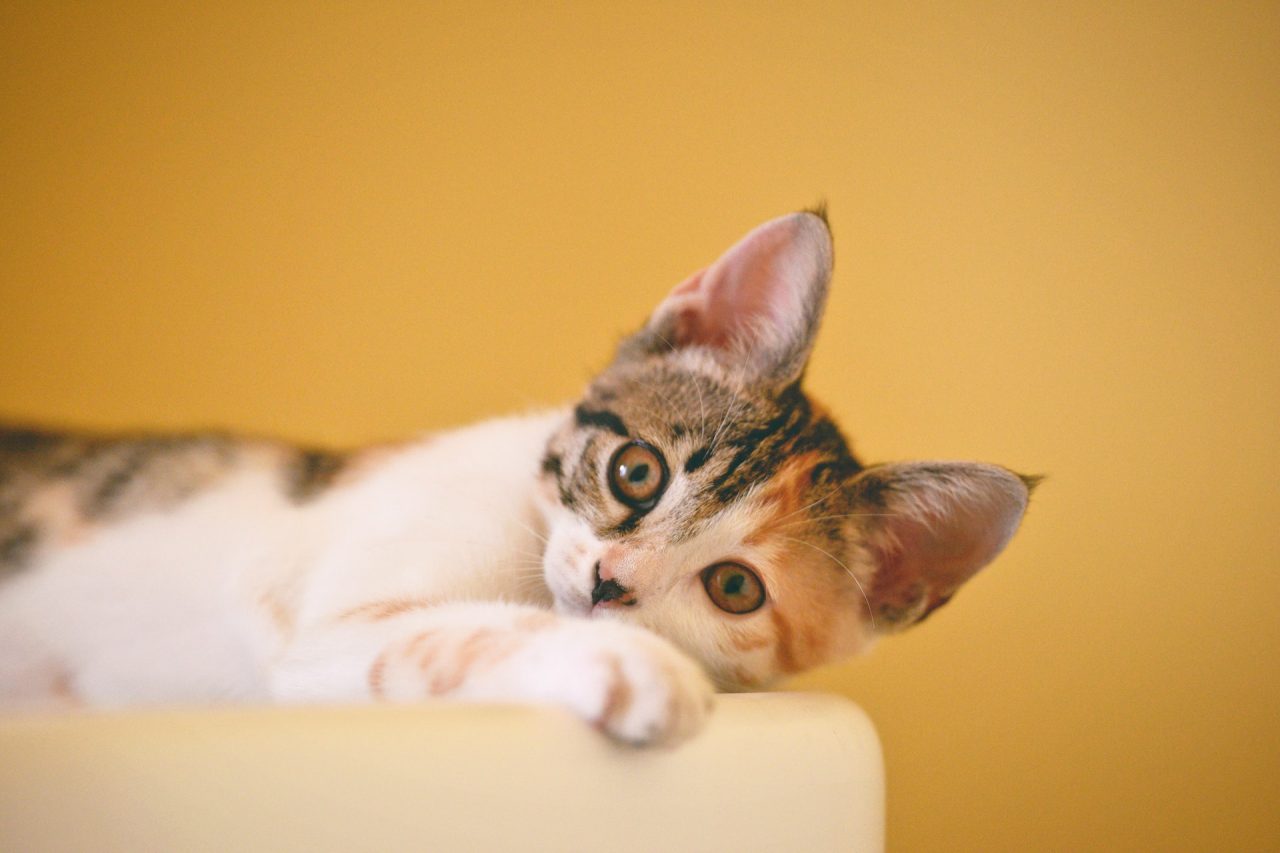Table Of Content

Of course, like in cases with allergies, your cat may inadvertently end up licking away the hair too. This can happen with conditions like arthritis or even injuries and medical conditions, such as a urinary tract issue, when they excessively lick their genital area. You might notice your cat’s ears lack fur because your cat is constantly scratching or something makes the hair fall out by itself.
When Should I Go to the Vet for a Cat Losing Hair on Their Ears?
The quicker the cause is diagnosed, the more easily it is treated, and you can prevent the problem from getting completely out of hand. In many cases, the hair on your cat's ears will eventually grow back. Treatment usually consists of thoroughly but gently cleaning out the ears and applying a vet recommended medication directly into the canals.
Hereditary Hair Loss
Chronic anxiety and stress is not good for them and may lead to various health issues. A highly stressed feline may seek a way of relieving their stress, often resulting in compulsive behavior like incessant licking or scratching. Moving to a new home, introducing a new pet, or any other big changes in your cat’s life may cause anxiety and stress and cause them to lick themselves obsessively. Usually, once the stressful event is over, they may stop the habit, but at times, it can become compulsive. All skin infections—be it from excessive licking due to another underlying cause, an abscess, or a wound—need veterinary attention promptly. Your vet can confirm if there is a fungal or a bacterial infection by culturing the site.
Proliferative and Necrotizing Otitis Externa in Cats
Additionally, it also promotes relaxation & helps your cat combat stress. If your cat has sensitive skin and is prone to seasonal allergies, this product can do wonders for your feline friend. It is also great for boosting your cat’s immune system and improving the cognitive function of your cat.
Cat Losing Hair On Ears: 6 Reasons Your Feline's Fur Is Falling Out
Sometimes more than one food is involved in a reaction, but all problem foods should be permanently eliminated from your cat's diet. Mange is contagious to other cats, dogs, and people, but many of the available topical parasite preventatives can treat it. Your vet may start treating your cat while waiting for the results of the fungal culture. Treatment typically consists of an antifungal shampoo and oral medication. Decontamination and cleaning of the environment include hair removal, carpet cleaning, and disinfecting surfaces.

Alopecia Areata
PetO’Cera pet shampoo is formulated exclusively for cats to deliver advanced moisture protection by soothing and moisturizing dry feline skin. Made with safe ingredients, this cat shampoo effectively works to tackle odors and maintain your pet’s coat clean and fluffy. At , we only endorse brands and products that meet the highest safety and efficacy standards. Our team rigorously evaluates ingredients, fact-checks health claims, and ensures brands operate with integrity.
Thanks to genetics, cats can lose hair on their head or around their ears. It’s called hereditary hair loss, so there’s no underlying medical condition except for a transfer of genes. So, these bald patches don’t cause irritation and upset cats. The saliva left behind when a flea bites a cat causes an itchy reaction called flea allergy dermatitis that makes cats scratch like crazy. A cat losing hair on ears requires veterinary attention to determine what is causing the alopecia. If your vet finds fleas leading to hair loss, they might suggest a flea treatment plan.
One Vet

You can treat your cat with insecticidal shampoos, dips, sprays, or spot-on medications like Frontline, but I also advise asking your vet for guidance. In this section, I will discuss the most common causes of hair loss in felines, so take a look and schedule a vet appointment as soon as possible. Fleas are easily detected by their physical presence or by the small droppings they leave in your cat's fur. Infestations can be treated using a number of insecticidal products, including sprays, shampoos, dips, and spot on medications such as Frontline for cats. Once your veterinarian has determined a cause for the hair loss and started treatment, you should begin to see hair regrowth in a few weeks.
Why Do Dogs Shake Their Heads? There Are a Few Reasons - Daily Paws
Why Do Dogs Shake Their Heads? There Are a Few Reasons.
Posted: Wed, 31 Aug 2022 07:00:00 GMT [source]
Stress can be less obvious to identify than physical causes but can still result in noticeable hair loss. A cat might comfort itself with excessive grooming when stressed, eventually leading to bald spots. Flea saliva is highly irritating and will cause skin inflammation in affected cats.
They’re visibly noticeable and even leave small droppings in your cat’s skin and fur. When fleas bite, they leave saliva behind, which causes itchiness called flea allergy dermatitis. In other words, the fleas’ saliva makes felines scratch excessively. Cats tend to lose the hair around their ears since they rub their faces to relieve itch. If the underlying cause is a behavioral reason for your cat’s over-grooming leading to hair loss, your vet might discuss your cat’s lifestyle to figure out what is causing them stress. To find out more about what’s going on, take your cat to your veterinarian for a complete exam, including blood work, a thyroid function check, and a urinalysis.
Cats can’t lick their ears, but they may lick and rub their paws over their ears excessively. As your cat ages, a normal amount of hair loss occurs in front of the ears. This hair loss is particularly noticeable in black cats but can happen in any color.
It results in intense itchiness, and your cat’s skin might appear as if it has a rash. As your cat scratches the irritated area, this leads to scab, lesion and bald patch formation. So if you think that cat hair loss on the ears is due to an allergic reaction to pollen, dust or mold, then monitor your cat for other additional symptoms. Loss of hair on the ears can be a sign of ringworm infection, mite infestation, an allergic reaction, hormonal imbalance, hyperthyroidism, flea infection, and other similar disorders. A stressed cat might experience hair loss if they are overly anxious or experiencing stress for a prolonged period.

No comments:
Post a Comment